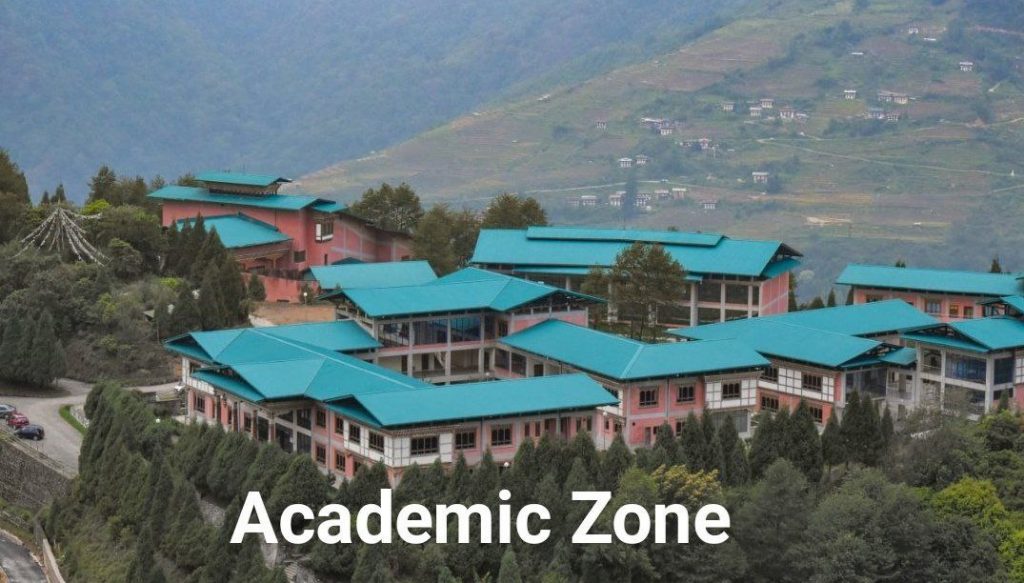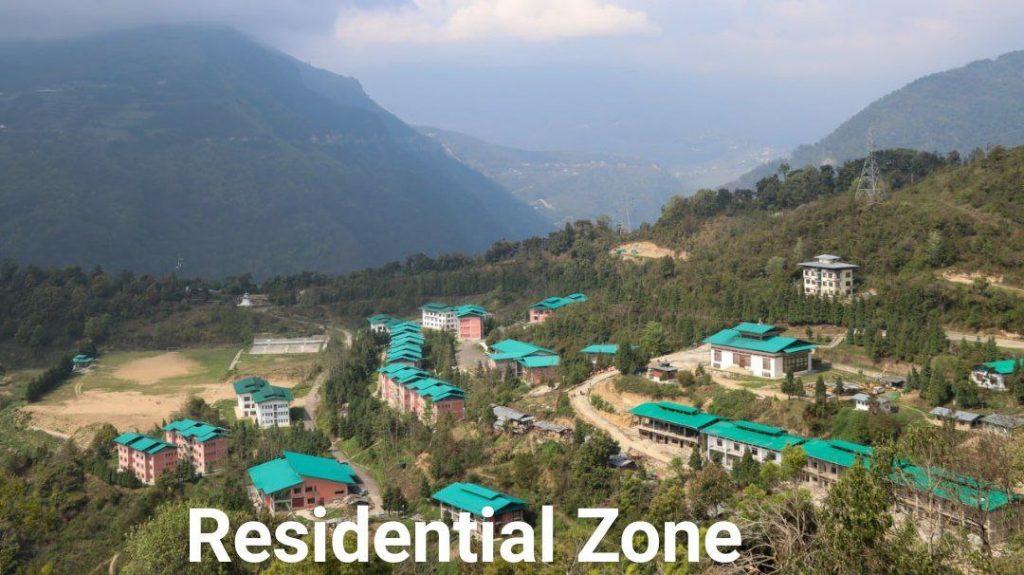

The College of Language and Culture Studies (CLCS) is situated 16 kilometers south of Trongsa town, towards Kuenga Rabten Palace along the Trongsa-Zhemgang highway. Kuenga Rabten used to be the winter residence of the second King, Jigme Wangchuck.
Earlier, the institute was popularly known as the Rigney Lobdra. It came into existence on the 4th day of the 6th month of the Male Iron Ox Year corresponding to the 16th of July 1961 at Wangdi Tse, in Thimphu. It was established under the auspices of the late third King Jigme Dorji Wangchuk. His Holiness the late Dilgo Khentse Rinpoche (1910-91), an accomplished and spiritual leader, was the first principal of the Lobdra (1961-63). The Lobdra started with a total of fifty students. Two months after its establishment, the Lobdra was relocated to Semtokha Dzong. It was housed inside the Dzong until the early eighties. Later the Dzong was taken over by Dratshang Lhentshog and the institute moved out of the Dzong. A separate site was created above the Dzong for the institute to function, and it has been operating in this location for the last two and half decades.
Initially the institute started as a semi-monastic institute. It was only in 1989 that the original curriculum was revised for the first time to include several cultural subjects. The institute was upgraded to Rigzhung College in the same year. Forty-three female students were admitted for the first time, thus breaking the 27 year old tradition of admitting only males. The curriculum, however, remained largely influenced by the monastic system of education.
In 1997, the institute was formally upgraded to the Institute of Language and Culture Studies and implemented a new curriculum. The first batch of thirty-five ICSE passed students was admitted into the new programme. Of the 35 students, 9 were girls and 26 were boys.
1999 was a landmark year in the history of CLCS. The three-year bachelor’s program in ‘Language and Culture’ was introduced for the first time and a batch of nineteen students was admitted. It was, in fact, the first ever homegrown programme developed and executed in Bhutan without any external assistance.
Prior to the establishment of the Royal University of Bhutan (RUB), CLCS was under the Ministry of Education. Among the tertiary institutes of RUB, CLCS was the first institute to be formally handed over to the RUB by the Ministry of Education on 28th April, 2004. A founding member of the Royal University of Bhutan, today CLCS remains a premier institute.
Over the years the institute has managed to maintain the momentum of academic progress. The institute, through the success of its graduates in different fields, has been able to create its own identity in the country. This distinction that clcs holds is reflected in the graduates that constantly feature in the top rankings of the RCSC common examination. The absorption rate of its graduates is currently 100% and the demand is increasing each year. The graduates of CLCS have been faring well in their work place as well as in their lives.
The institute is committed to explore greater heights of excellence through diversification of its programmes and research initiatives. A couple of new programmes will be offered within the 11th Five Year Plan.
